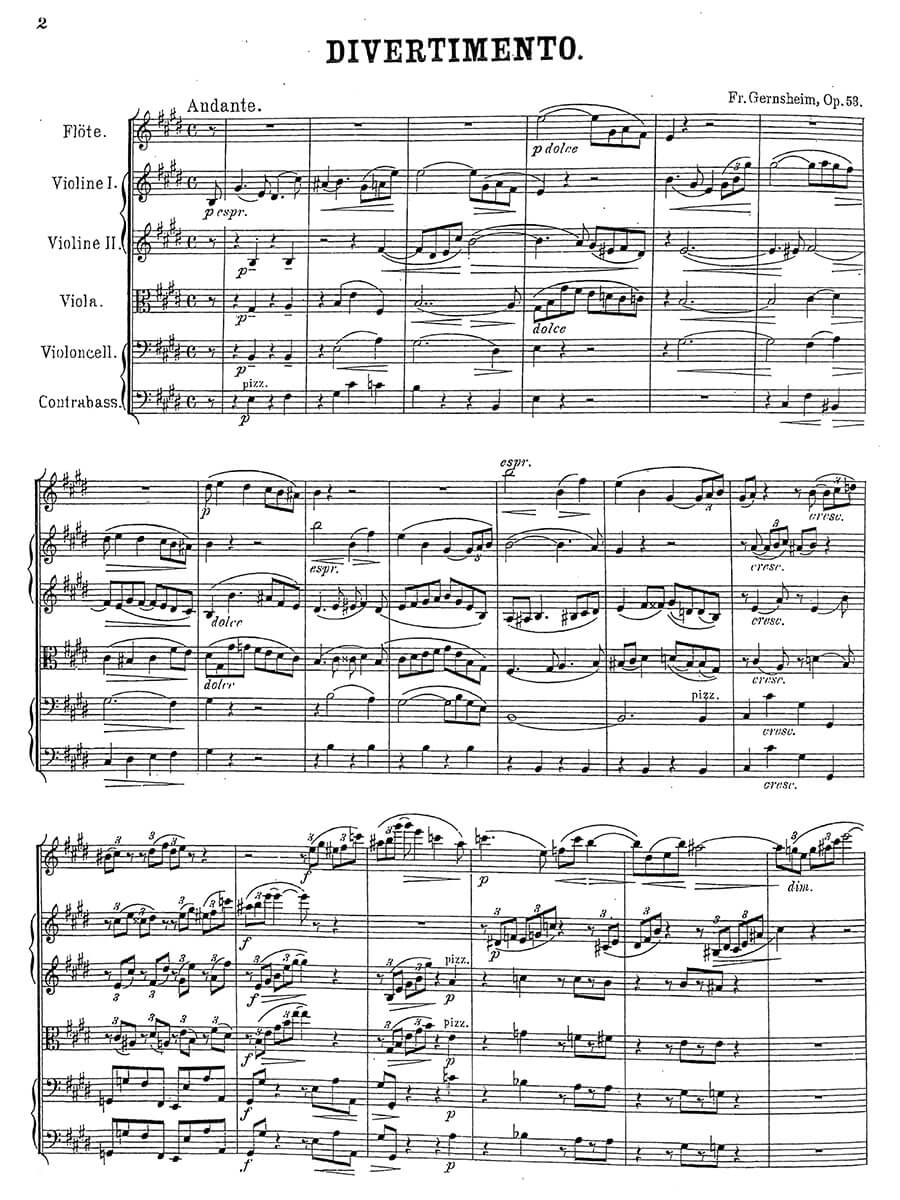Divertimento in E Major for Flute and Strings Op. 53
Gernsheim, Friedrich
19,00 €
Preface
Friedrich Gernsheim – Divertimento in E Major for Flute and Strings, Op. 53 (1888)
(b. Worms, 17 July 1839 – d. Berlin, 11 September 1916)
The German Romantic composer, conductor, and pianist Friedrich Gernsheim earned the respect of some of his most prominent peers, among them Johannes Brahms, Max Bruch, Clara Schumann, and Gustav Mahler. As part of a generation of composers who came of age in the height of Academy culture, his work struck a balance between the formalism of his education and the expansive harmonies of composers he admired, including Richard Wagner. During his extensive career, Gernsheim made valuable contributions to the chamber music repertoire which are now beginning to receive their due recognition.
Born in Worms, Gernsheim was trained at the Leipzig Conservatory and later in Paris.1 Ringer recounts that the sixteen-year-old Gernsheim’s departure from Leipzig was so momentous that the director of the Leipzig Conservatory met him at the train station with a lock of Felix Mendelssohn’s hair, symbolic of Gernsheim’s prodigiousness (and perhaps too of his Jewish identity).2 After befriending Rossini, Saint-Saëns, and Lalo in Paris, Gernsheim left for Saarbrück at the age of twenty-two, and later lived in Cologne where he befriended Johannes Brahms.3
In 1873, Gernsheim was offered the position of Director of the Rotterdam Conservatory and Director of the city’s Society for the Promotion of Music („Gesellschaft zur Beförderung der Tonkunst”). As the “leader of Rotterdam’s musical life” („Führer des Rotterdamer Musiklebens”), Gernsheim directed performances of works by Beethoven, Gounod, Mozart, Brahms, and Wagner.4 Despite Wagner’s antisemitism, Gernsheim had admired him since hearing a performance of Lohengrin as a teenager, and even as Wagner’s racial views became more virulent, Gernsheim’s affinity for his music did not cease.5 Meanwhile, his mentors on the more conservative side—chief among them, his Leipzig professor Ignaz Moscheles—encouraged him to stay on “the middle road” („auf der Mittelstraße”) and avoid “the labyrinth of the futurists” („Labyrint der Zukunftsjäger”).6 …
Read full preface / Das ganze Vorwort lesen> HERE
Score Data
| Edition | Repertoire Explorer |
|---|---|
| Genre | Chamber Music |
| Pages | 44 |
| Size | 210 x 297 mm |
| Printing | Reprint |
